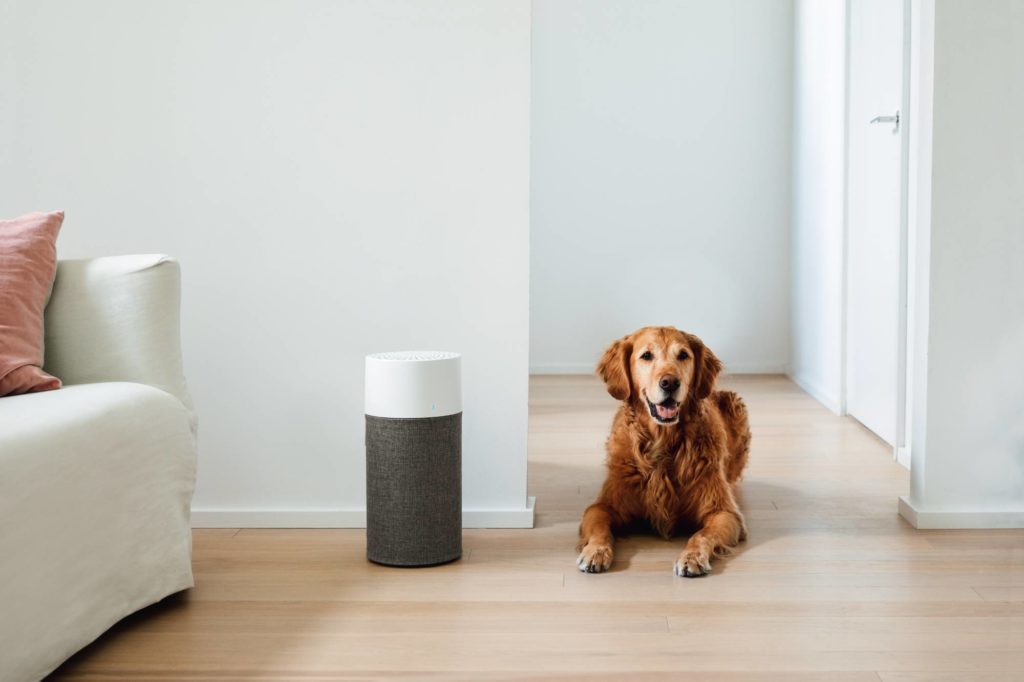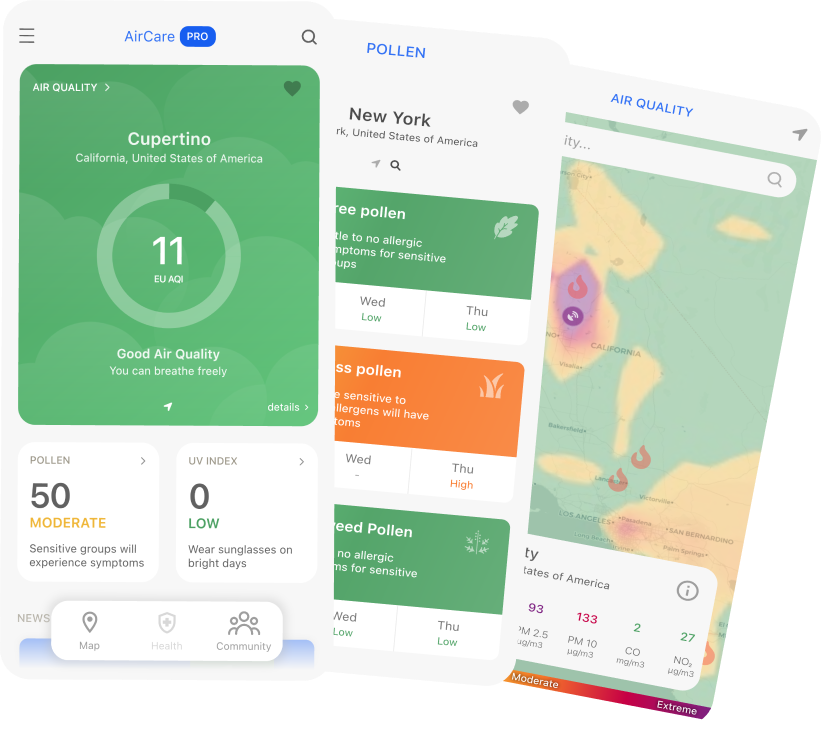Energy-efficient doors and windows are good at keeping pollutants out of your home, but they also trap a lot of harmful stuff inside it.
An unhealthy indoor environment has ill effects on human health. Some factors that contribute to it include pet dander, mold, dust mites, gases from building materials and cleaning products, and smoke from cooking, burning wood, and tobacco.

Air purifiers have become a necessity for indoor spaces with increased allergens and pollutants present in the air.
Air purifiers use electrostatic, ionic, mechanical, or hybrid filtration to cleanse indoor air. The air purification process includes drawing polluted air through the filters and then circulating it back into the room.
Things To Consider While Shopping for an Air Purifier
Before purchasing an air purifier, there are certain aspects that you need to consider. Below, we will go over the main features of an air purifier you should keep in mind when shopping for one.
Noise
Most air purifiers pull air through internal fans that have a series of filters. Usually, these fans are silent, especially if the air purifier is on low settings. However, as you turn the air purifier up, some of these fans can make a humming sound.
You shouldn’t judge an air purifier solely on its performance, but you should also judge it on how well you’ll be able to live with it. In an ideal situation, an air purifier will be quiet, since these machines should always be running. You also might want to choose an air purifier that is relatively quiet, even at higher speeds, if for instance, you’re using an air purifier in your baby’s room or your bedroom.
If you want to minimize the noise from an air purifier, a useful tip is to run the unit on the high setting when you’re not in the location it’s placed in, and then when you are nearby just turn it done.
Portability
Some air purifiers are more mobile and lighter than others. The heavier and larger air purifiers are best kept still, even though some of them come with casters for movability. The smallest air purifiers can be easily moved from one room to another and they can be placed on a shelf or a desk.
You should look for a device that rolls or is smaller if you want to use your air purifier in your office during the morning, your living room during the evening, and your bedroom during the night.
Maintenance Costs
Once you have your air purifier set up in your home, don’t just assume that you’re done paying for the device. The filters of the air purifier need to be replaced on an ongoing basis after certain periods of time.
Different air purifiers have different costs when it comes to the replacement of filters. Some of them use cheaper filters that need to be changed on a frequent basis, while others have very expensive filters that last for years. For instance, depending on use, HEPA filters last about one year, activated carbon filters usually last for six months, and pre-filters typically last for 3 months, also some of these filters are washable.
In addition, the HEPA filters must be entirely replaced due to the fact they are disposable, while some of the prefilters are washable. When buying an air purifier, make sure that you calculate how much will it cost yearly to maintain it, and then compare it to the cost of other air purifiers you might consider getting.
Warranty
An air purifier can be a costly investment for your home, so ensure that the warranty on the product lasts for a longer period of time in order to protect you from any manufacturing defects that might occur.
Special Features
After you’ve chosen the size and type of air purifier you need, consider whether or not you would like your air purifier to include any special features such as:
- Air quality indicators that give real-time updates on the quality of air.
- Wi-Fi air purifiers that let you control the settings from your phone.
- Other features such as filter change indicators, multiple fan speeds, remote controls, handles for easy mobility, and caster wheels.
Bottom Line
There isn’t a single air purifier that is the best choice for everyone. Make sure that the air purifier you pick is the right size for your space and that it offers the best filtration for common pollutants in your home. Then, you can evaluate secondary features such as portability and noise levels. Make sure that the ongoing maintenance costs and the energy costs of the air purifier are within your budget. Lastly, make sure that you place your purifier correctly.
AirCare partners with some of the best air purifier companies out there like Daikin and BlueAir, and we only allow verified and proven technology on our platform (disclaimer: we get paid for doing product placement in the app).
Do you want to know the quality of the air you breathe? Download AirCare – our free mobile app that tracks air pollution from your pocket, and check out the AirCare blog!





